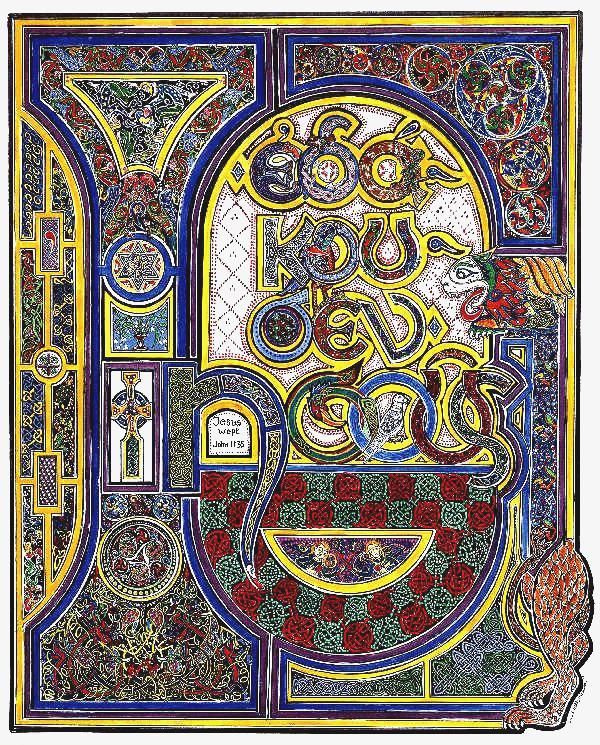Gaelic Christianity – Fountainhead of the Watersheds of Western Civilization

Gaelic Christianity – Fountainhead of the Watersheds of Western Civilization
The Florentine intellectual Petrarch held a passion for the Roman Cicero – the lives of the two Italians geographically proximate though separated by fourteen centuries’ time. When manuscript copies of the works of the great Roman orator and author were discovered in Verona, in the library of the school of a daughter Abbey of Bobbio, it ignited a renewed interest in humanism, or self-culture, and sparked the Italian Renaissance. Bobbio was among the most important Abbeys in Italy, and the renewed interest in the treasures of its libraries increased its renown; Umberto Eco’s international best-selling novel, The Name of the Rose, and the movie it inspired, are said to be based in part on the monastic life, library and great scriptoria of Bobbio Abbey.
The Protestant Reformation was the revolt first against the earthly power and corruption of the Church, and then against the earthly power and oppression of monarchs – “No Bishop No King!” The principal men of the Reformation, Luther, Calvin and Knox grew from centers of the ancient historical Gaelic Christian practice, at Erfurt, Vienna and in Scotland. It was Christians of Gaelic practice heritage, ascended from within more ancient Gaelic Clan traditions of freedom, equality and representative government that first rejected assertions of divine rights for earthly power over man in affairs of church or state.
The Scientific Revolution saw the application of reason to understanding God. Christ followers believed God to be rational, and in the universe of His creation, the application of reason to investigation led to discovery, progress and the Rise of Science. The giants of this unprecedented civilizational advance, Copernicus, Bacon, Newton, Galileo, Kepler, Descartes and others were all deeply religious Christians, educated at Abbey or Cathedral schools and the great medieval universities that followed, seeking to grow closer to God through an increased understanding of his Creation.
The Enlightenment is the name given to that period of New Thinking that emerged among intellectuals made comfortable by the fruits of widespread Christian industry, frugality and values. Perhaps foreshadowing our current age, on the Continent Enlightenment thinkers challenged religion as irrational and embarked upon the search for self, in the name of humanism, unencumbered by Christian morality and making acceptable again every debauched concept of self-gratification.
Fortunately, the Scottish Enlightenment’s gift was rational religion, understanding God in everything and considering how God would prefer Man to conduct his affairs for the greatest opportunities, equality and freedom for the greatest number. The fruits of the Scottish Enlightenment are being enjoyed today, as whole new intellectual disciplines were created, such as Moral Philosophy and Political Economy, while every other aspect of thinking about Man and Nature, from Agriculture to Fisheries and Medicine to Zoology, was brought into Modern formulation.
The Renaissance, Reformation, Scientific Revolution and Scottish Enlightenment all led to the next two unexpected, unprecedented and breathtaking developments in our Western Christian Civilization – the Industrial Revolution and the creation of the United States of America. It was the year 1776 that saw America declare her Independence from Britain and also Scottish Enlightenment philosopher Adam Smith publish The Wealth of Nations – kickstarting in the United States free-market capitalism in common with Christian values and work ethic amid the political, economic and religious freedoms of a Constitutional Democratic Republic.
This is our Way of Life and it has led to the greatest improvement in the lives of the greatest number of people in world history. Yes, Capitalism and Republican Democracy, but neither would have come into existence, and neither will continue, without the foundation of Christianity.
Scotus
photo credit: Book of Kells Carpet Page
